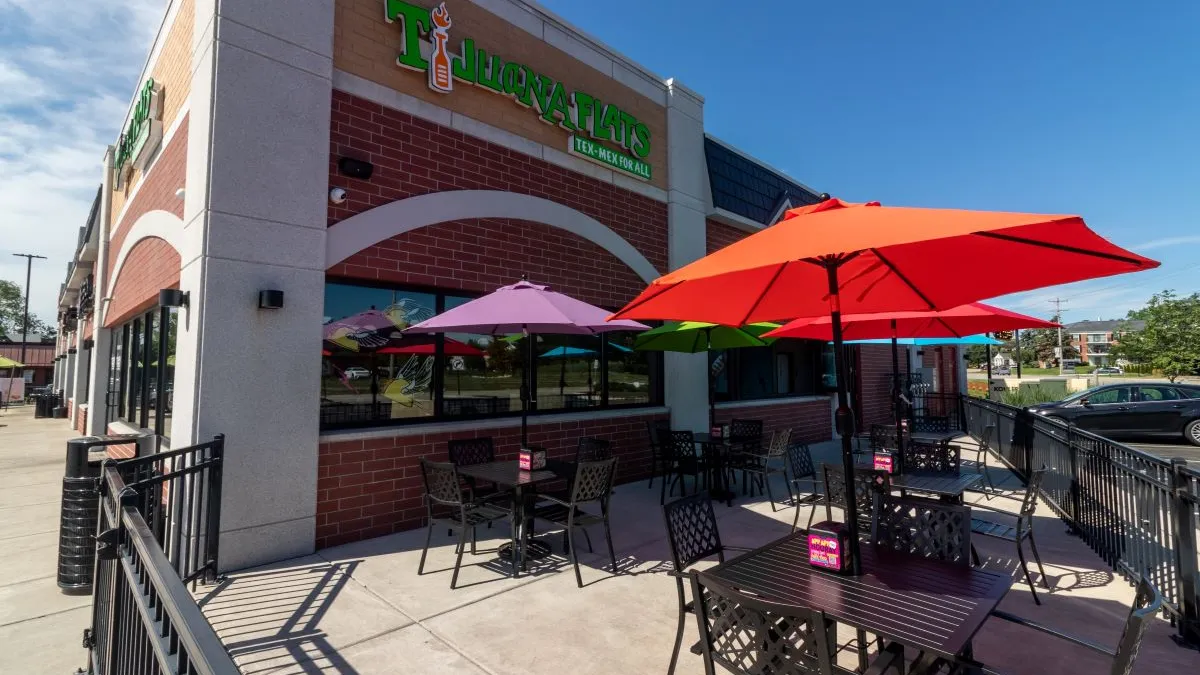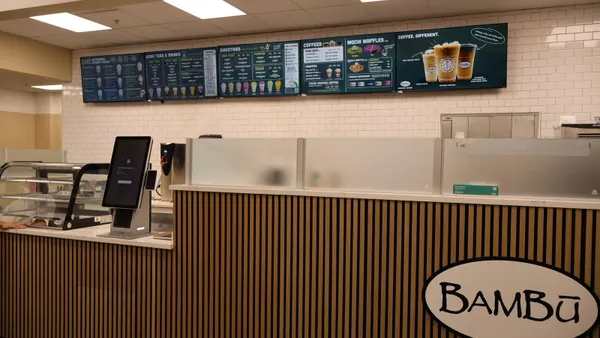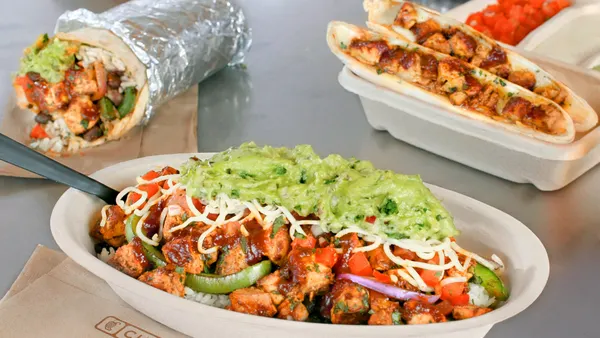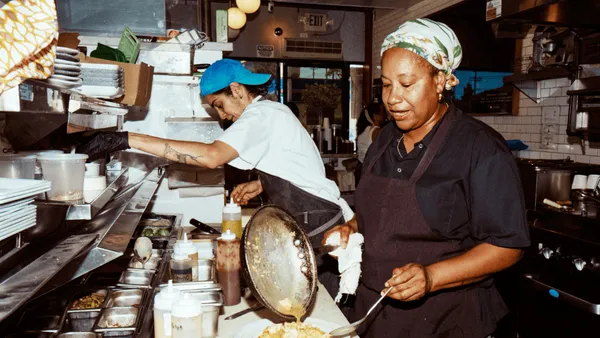Dive Brief:
- Tijuana Flats, a fast casual brand with 100 company- and franchised-owned units, has completed its Chapter 11 restructuring process after filing for bankruptcy last year, according to a press release emailed to Restaurant Dive.
- The chain has reduced its debt load, improved its profitability and increased its operational efficiency, per the release.
- Some of the brands that sought bankruptcy protection last year, including Red Lobster and World of Beer, have begun to emerge from the process after shedding unprofitable assets and realigning their balance sheets.
Dive Insight:
Tijuana Flats said it had prioritized consumer feedback and was looking to menu innovation to set itself apart from competing Mexican fast casual brands.
“Recent efforts include a partnership with a renowned family-owned Mexican food company to create authentic recipes superior to anything available in fast casual Mexican. This collaboration includes the soon-to-be permanent Street Tacos, the result of a successful limited-time beta launch,” Tijuana Flats wrote in the press release.
Street tacos could prove especially important for Tijuana Flats, as more chains are testing items that resemble Mexican street food. Taco Bell’s Cheesy Street Chalupas are the most prominent recent example of the trend. Street foods allow fast casual brands and QSRs to adopt something of an outside aesthetic by recontextualizing menu items associated with much smaller business.
The brand has also undertaken a refresh of its stores, though the press release does not detail how this will “enhance the guest experience.” The release states that the brand overhaul will not change its central identity.
The chain’s post-bankruptcy efforts will include launching “tailored marketing promotions” and using its Flatheads loyalty program to connect with guests and emphasize value, the press release said.
Eventually, the chain plans to launch stores in new markets — Tijuana Flats currently operates in Florida, Alabama, North Carolina, Kentucky and Tennessee.
Other restructured restaurant firms have also changed up their menus and promotional strategies. Under new CEO Damola Adamolekun, Red Lobster, for example, has added new happy hour promotions and added old favorites back to its core menu. After closing 14 locations last year, World of Beer is turning toward growth with plans to open four to five franchise locations each year for the next five years.














